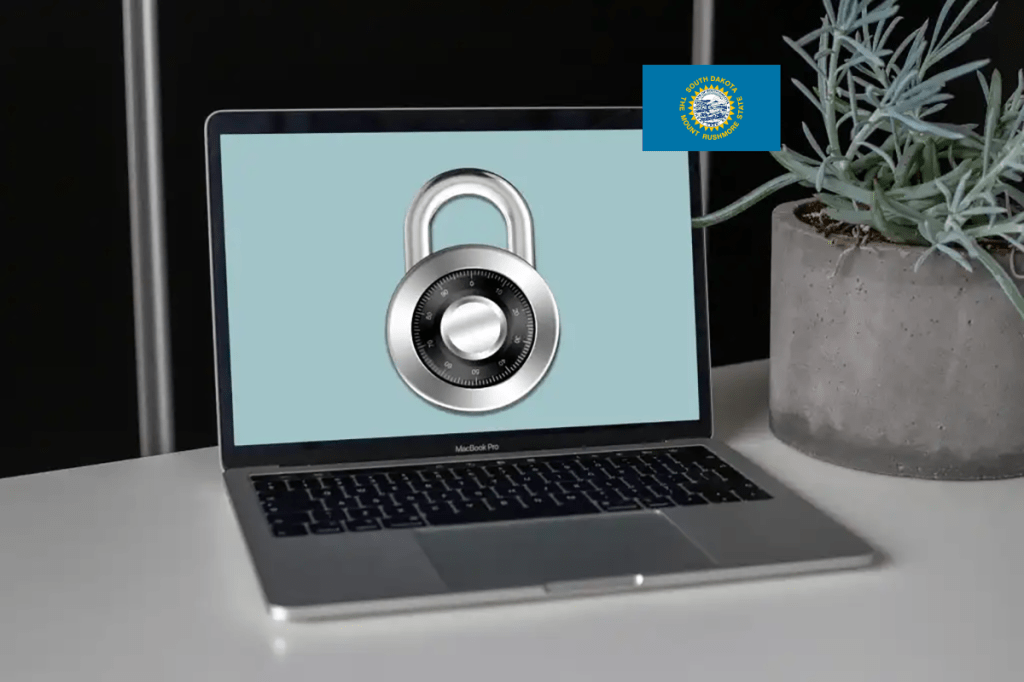As of June 30, 2025, South Dakotans have been caught in a whirlwind of legislative changes regarding adult content access. The state’s implementation of House Bill 1053, aimed at enforcing age verification for adult websites, has led to significant restrictions, notably barring access to Pornhub, one of the most frequented adult sites in the country. This law raises serious concerns not only about internet privacy and free speech but also about the broader implications of governmental oversight in digital spaces.
Legislative Background
House Bill 1053, which was passed earlier this year by the South Dakota state legislature, seeks to prevent minors from accessing adult content by mandating age verification processes on such websites. The law took effect on July 1, 2025. In protest, Aylo, the parent company of Pornhub, moved to block access to their sites for South Dakota residents a day earlier. This action highlights an escalating conflict between digital content providers and state legislatures aiming to impose stricter regulations on internet usage.
The legislation has ignited fierce debate among lawmakers, privacy advocates, and users alike. Critics, including advocates for free speech, argue that this type of regulation not only infringes on individual rights but also puts personal data at risk. By requiring users to submit identifying information, there’s a fear of government overreach and potential misuse of sensitive information. This concern resonates deeply with those in South Dakota, especially since this trend is not isolated. Reports indicate that over 19 states have implemented similar restrictions, with Texas and Florida being among those who saw bans earlier last year. Other states, including Wyoming, Georgia, and North Dakota, have followed suit, indicating a growing nationwide pattern of restrictive measures on adult content accessibility.
Impact on Residents
For legal-age individuals in South Dakota, the loss of access to Pornhub poses a significant disruption to their online experiences. The implications reach beyond just inconvenience; they touch on fundamental issues of privacy and autonomy. Fortunately, there is a solution for those impacted: utilizing Virtual Private Networks (VPNs). By connecting to a VPN server located in a state where access remains unrestricted, residents can effectively bypass the governmental block on Pornhub and similar sites.
Using a VPN offers an added layer of security and anonymity, a crucial factor in the current climate of increasing surveillance and regulatory pressure. Those considering a VPN for accessing adult content should look for services that ensure high-speed connections, reliable privacy policies, and ease of use across devices.
Recommended VPNs for Accessing Pornhub
- NordVPN – Best Overall: NordVPN is consistently ranked as a top choice for VPN users. It offers extensive server coverage across most U.S. states and provides features like ad-blocking and robust privacy protocols. With fast connection speeds, users can enjoy uninterrupted streaming in high quality.
- ExpressVPN – Runner-Up: While slightly less rapid than NordVPN, ExpressVPN remains a powerful option. Known for its strong privacy record and compatibility with various devices, it allows users to stream content without compromising on speed or security.
- Mullvad – Best for Privacy: Mullvad stands out for its commitment to user privacy, requiring minimal information from its users. This service prioritizes anonymity and is reasonably priced at $5 per month, making it an attractive option for privacy-conscious users.
- Proton VPN – Best Free VPN: For those hesitant about paid services, Proton VPN is a standout free option. It carries no data limits, doesn’t place restrictions on speeds, and is known for its solid privacy practices. However, users should be aware of the inherent limitations that come with free VPN services.
Community Response and Future Outlook
The implementation of House Bill 1053 has sparked a wave of pushback from various community groups and privacy advocates. Many believe that these restrictions reflect a broader trend of censorship and could lead to the erosion of digital rights across the country. The Electronic Frontier Foundation has condemned such laws as detrimental to both personal freedom and the internet’s open ecosystem.
As the legal landscape continues to evolve in South Dakota and beyond, it will be essential for residents to stay informed about their rights and the technologies available to safeguard their online privacy. With ongoing discussions about the balance between protecting minors and ensuring personal freedoms, the implications of such legislation will be critical to watch.

